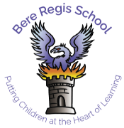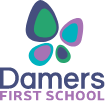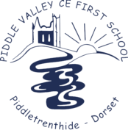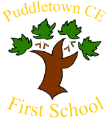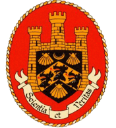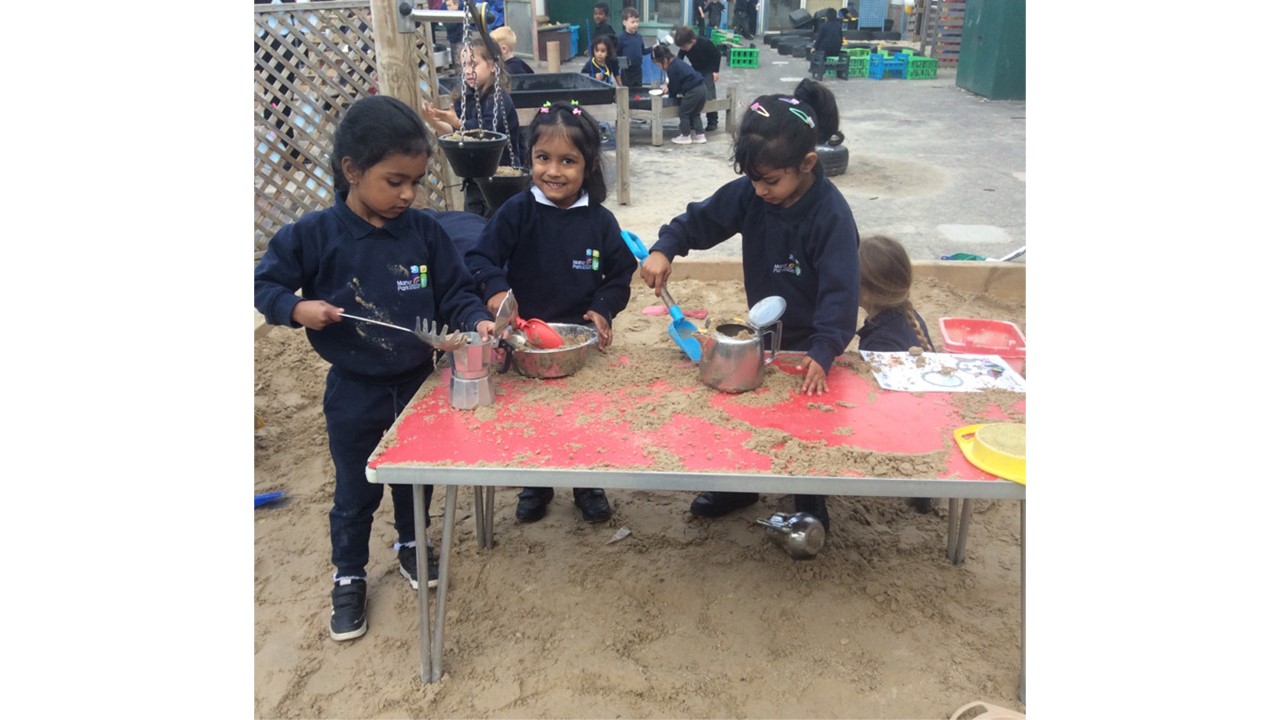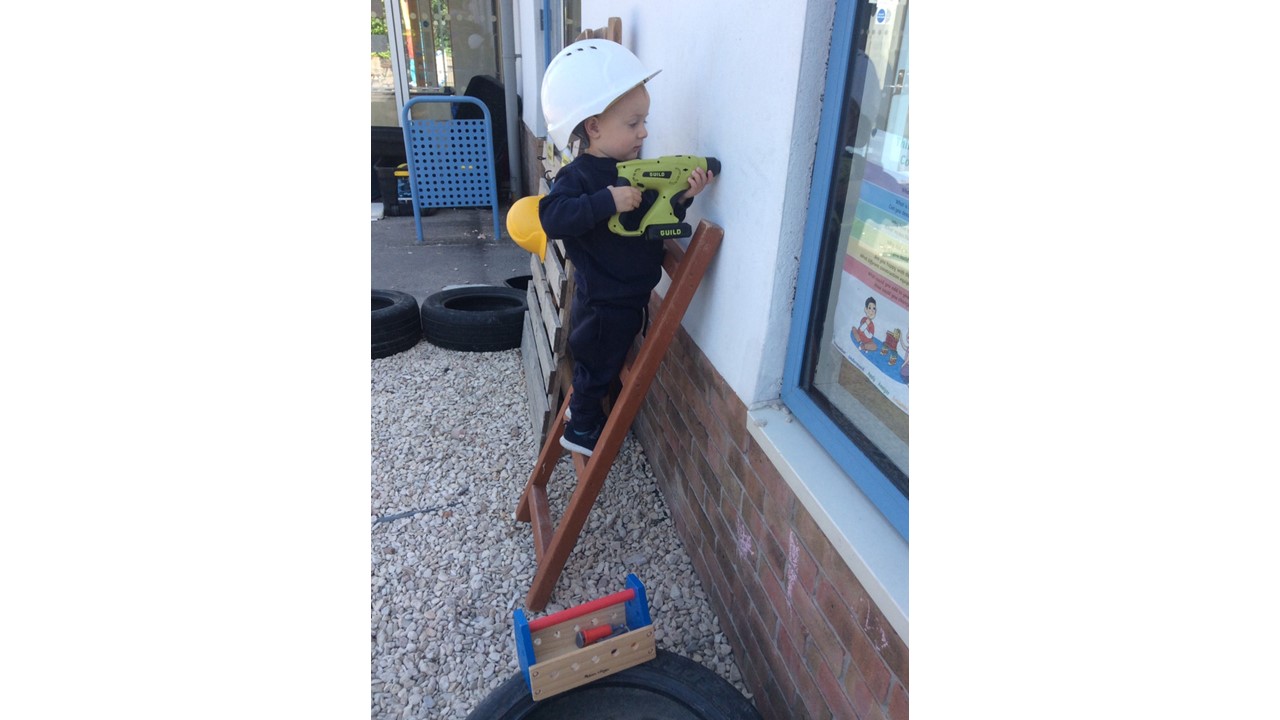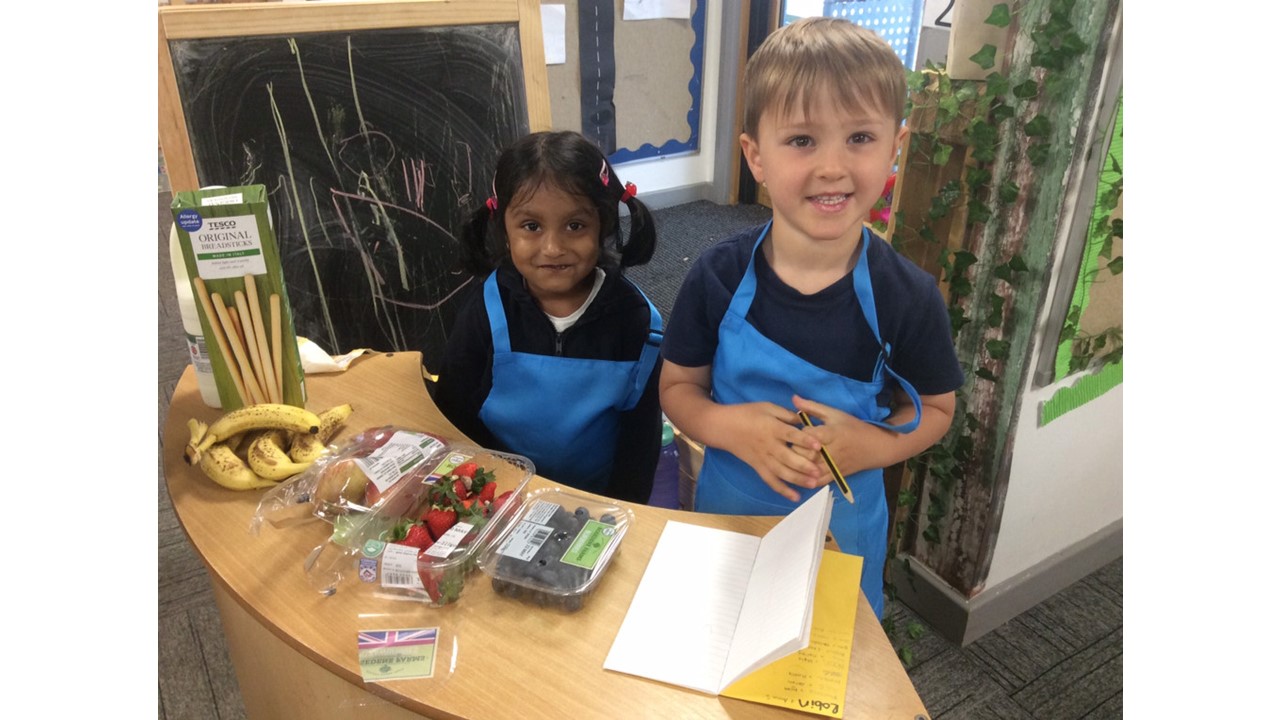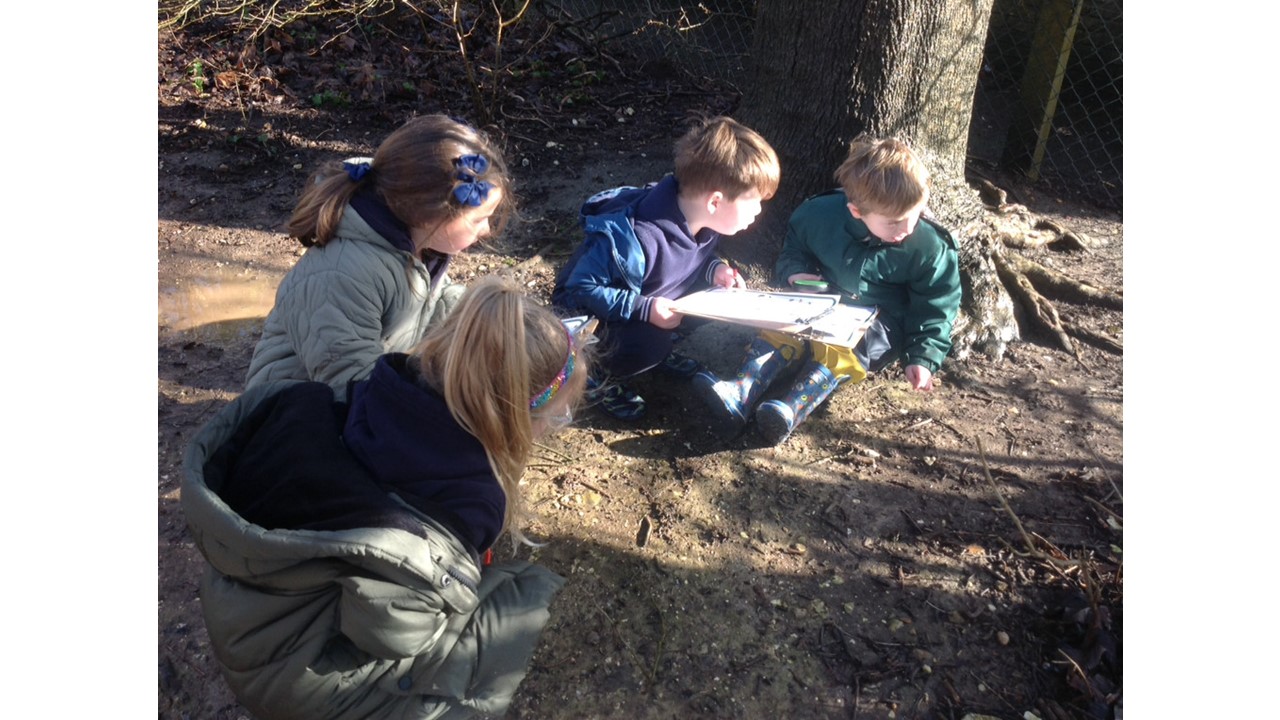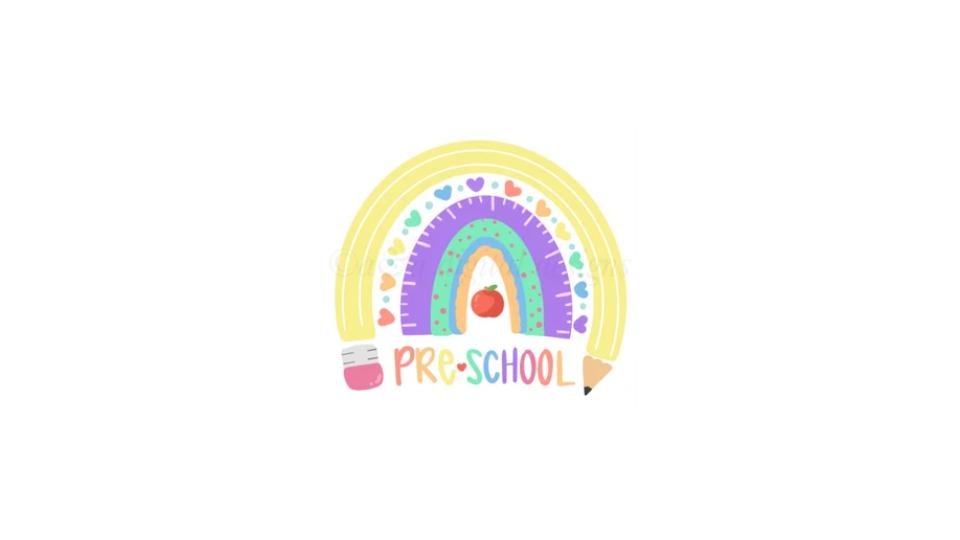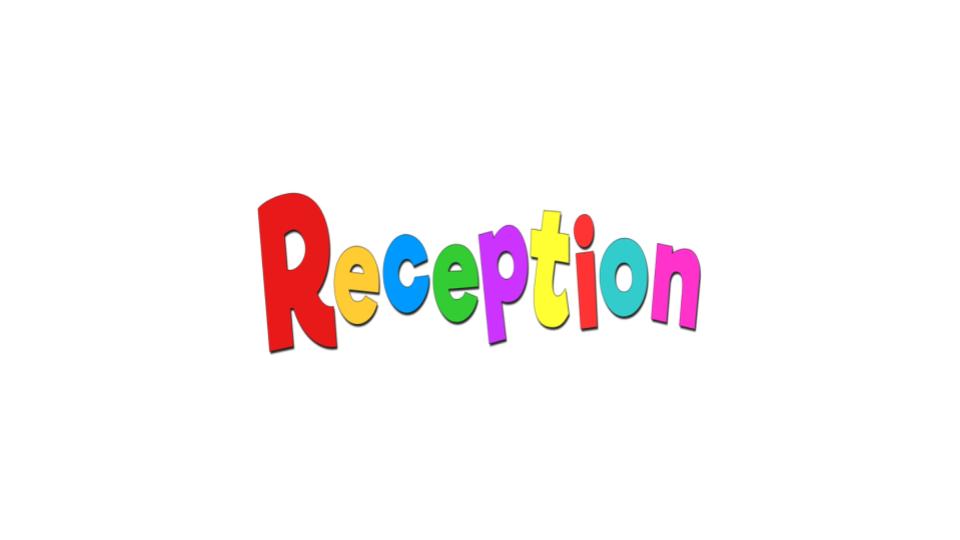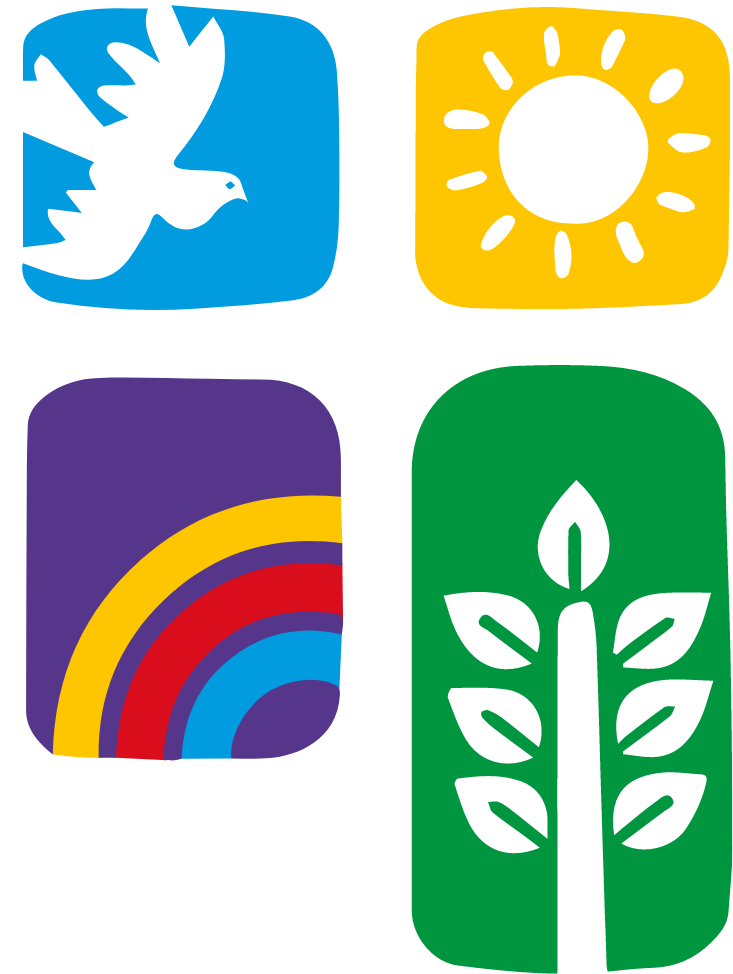
EYFS Base
#ManorParkPreSchool
#manorparkEYFS
Vision
At Manor Park, we have the highest aspirations for every child, believing that they should be empowered to take ownership of their learning and be confident within their environment. We want children to be creative, independent thinkers who can express and explore their ideas and develop a life-long love of learning. We nurture children’s natural curiosity and intrinsic creativity as powerful motivators across all areas of learning and development. We believe that risk and challenge are vital in order for our children to develop critical thinking, resilience and perseverance. We understand that every child is unique: recognising that they all learn and develop in different ways, at different rates and bring diverse experiences to our school. Our belief is that children learn most effectively through play.
Our base consists of a nursery, where children can attend from the age of 2, and we have 60 available places in reception.
Implementation
We provide all pupils with equal access to a rich, broad, balanced and progressive curriculum matched to their ages, abilities, interests, attitudes and additional needs. In doing so, we increase pupils’ knowledge, skills and understanding within the core skills of social play, physical and language development, literacy and mathematics as they grow and develop and strengthen their connections with the world around them. The curriculum is creative, carefully planned and structured to ensure that high quality continuous provision provides children with open-ended and flexible learning opportunities, promoting all aspects of learning and development. We work closely in partnership with families to provide every possible opportunity for our children to become confident communicators, to be socially competent, to have high levels of well-being and to develop the necessary physical skills.
A practical, play-rich approach to learning is delivered mainly through topic based planning which is child interest led and linked to our progressive curriculum. Direct skills such as phonics and early numbers are introduced through whole class carpet sessions and are reinforced through individual, small groups and whole class teaching, but the majority of learning is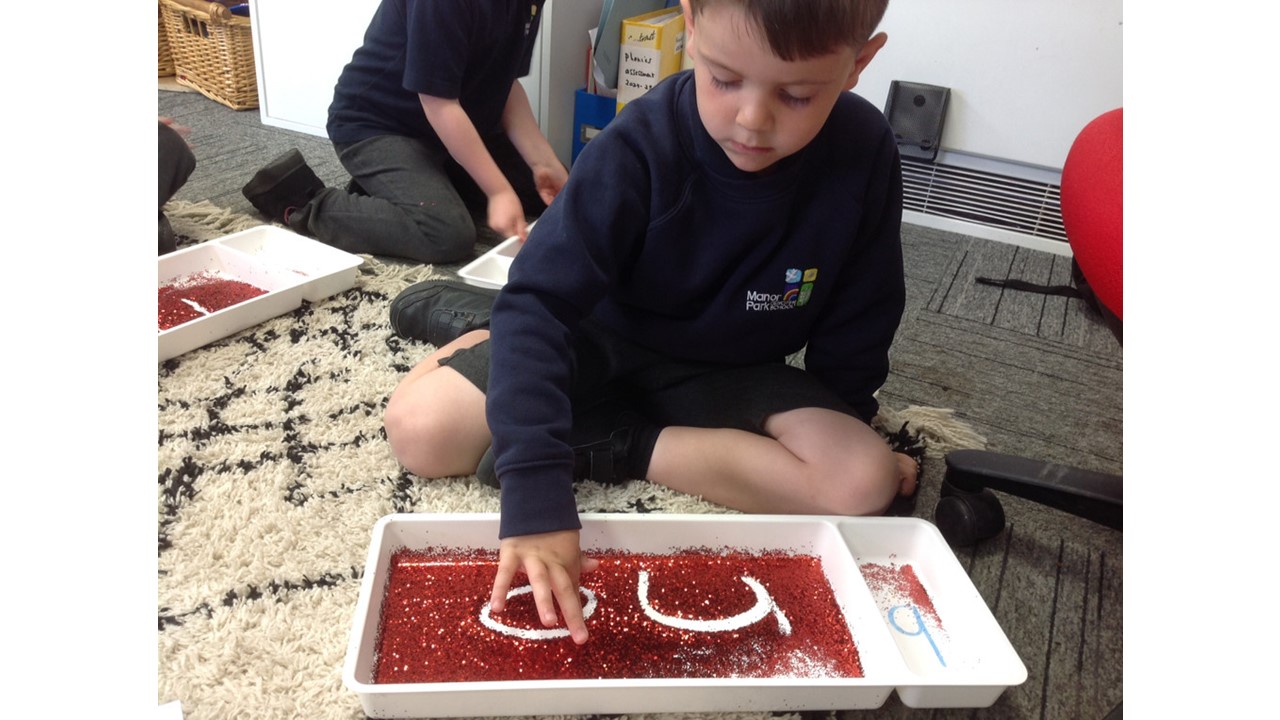
In addition to the continuous provision for cross-curricular learning, the children are taught a discreet 30-minute daily phonics session. We currently follow Pip and Pap in an engaging, interactive approach.
At Manor Park EYFS base, we have developed our progressive curriculum based on the Early Years Foundation Stage framework and Every Child matters. The Curriculum is made up of four overriding principles which our early years' education is based upon:
- Unique Child – Every child is unique, who is constantly learning and can be resilient, capable, confident and self-assured.
- Positive Relationships – Children learn to be strong and independent through positive relationships.
- Enabling Environments – Children learn and develop well in enabling environments, in which their experiences respond to their individual needs and there is a strong partnership between practitioners and parents and carers.
- Learning and Development – Children develop and learn in different ways. The framework covers the education and care of all children in early years provision, including children with special educational needs and disabilities.
The learning experiences within our Early Years are linked to the seven areas of learning and development within the EYFS. These areas are split into three prime areas and four specific areas. The three prime areas are those which the children should develop first and are considered most essential for the healthy development and future learning of our children. These include:
- Personal, Social and Emotional Development – involves providing opportunities for young children to be active and interactive; and to develop their co-ordination, control, and movement. Children must also be helped to understand the importance of physical activity, and to make healthy choices in relation to food.
- Communication and Language – involves giving children opportunities to experience a rich language environment; to develop their confidence and skills in expressing themselves; and to speak and listen in a range of situations.
- Physical Development – involves helping children to develop a positive sense of themselves, and others; to form positive relationships and develop respect for others; to develop social skills and learn how to manage their feelings; to understand appropriate behaviour in groups; and to have confidence in their own abilities.
As children grow and make progress in the prime areas, this will help them to naturally develop skills within the four specific areas. These are:
- Literacy – the early teaching of literacy involves encouraging children to link sounds and letters and to begin to read and write. Children are given access to a wide range of reading materials (books, poems, and other written materials) to ignite their interest.
- Mathematics – the early teaching of mathematics involves providing children with opportunities to develop and improve their skills in counting, understanding and using numbers, calculating simple addition and subtraction problems; and describing shapes, spaces, and measures.
- Understanding the World – this involves guiding children to make sense of their physical world and their community through opportunities to explore, observe and find out about people, places, technology and the environment.
- Expressive Arts and Design – this involves enabling children to explore and play with a wide range of media and materials, as well as providing opportunities and encouragement for sharing their thoughts, ideas and feelings through a variety of activities in art, music, movement, dance, role-play, and design and technology.
Children benefit from meaningful learning across the curriculum and staff plan resourcefully for opportunities for communication, sustained shared thinking and physical challenge to build on existing skills, taking into account the Characteristics of Effective Learning, which we teach our children through our Learning Animals.
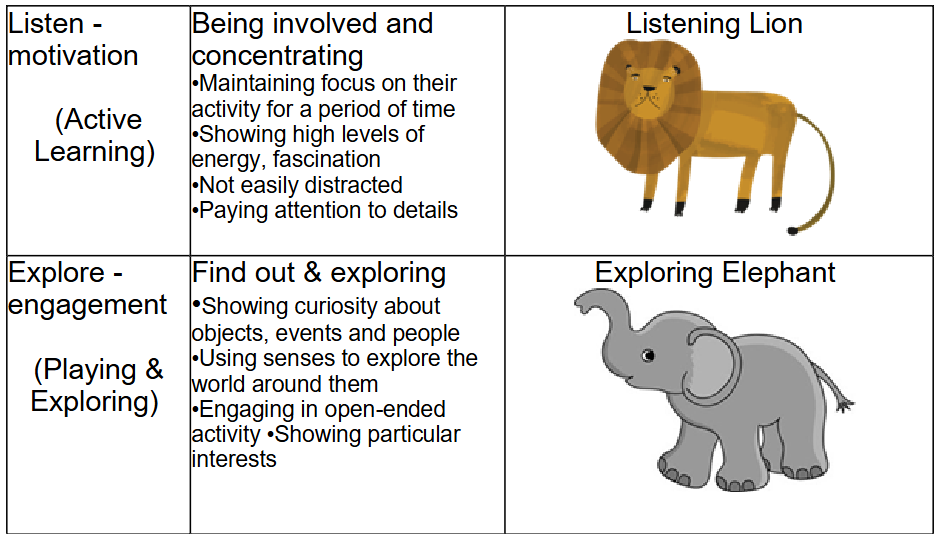
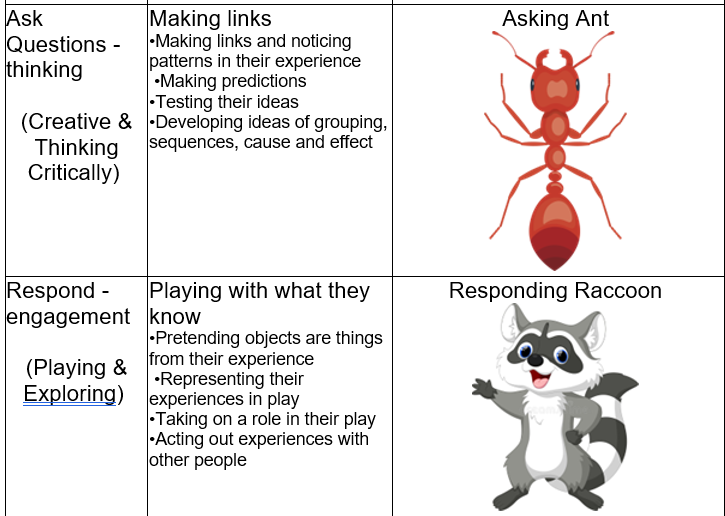
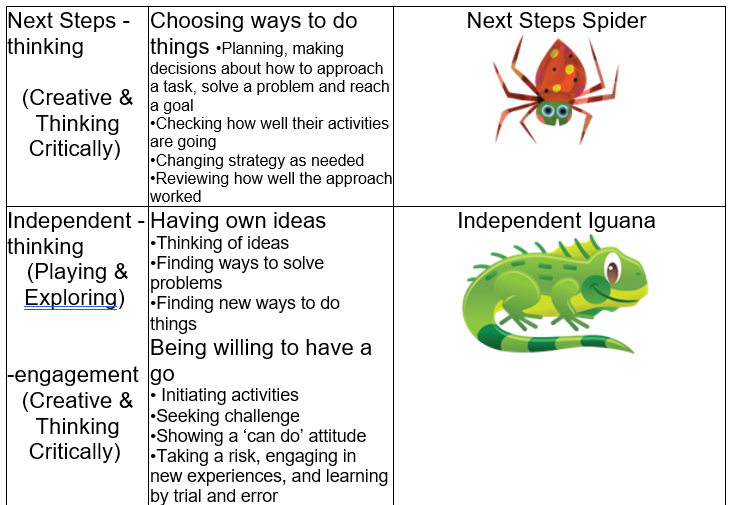
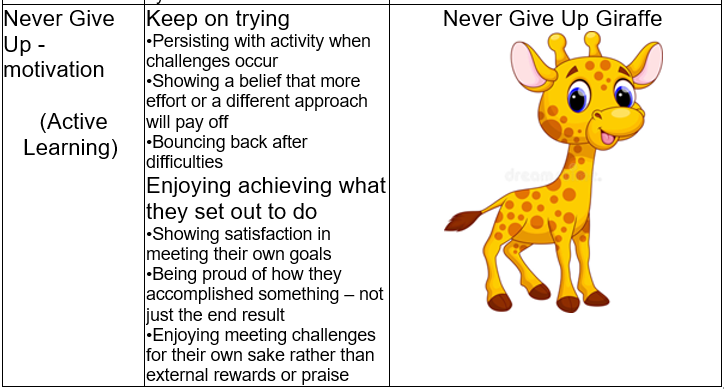
Rich first hand experiences (inside, outdoors, visitors and school trips) to widen experiences, awe and wonderment, exploratory learning and thinking creatively including problem solving across all areas of learning are at the heart of our provision. New vocabulary and concepts are explored through reading, lots of opportunities to talk and excite and engages all learners which includes staff modelling standard English and asking high quality questions.
Our curriculum does promote and support children’s emotional security and the development of their character, enabling children to take risks in a safe and secure environment. It supports children to be active and to develop physically, including giving clear messages to children about why it is important to eat, drink and exercise, as well as to be kind to others.
We recognise that the environment plays a significant role in supporting children’s learning and development and so our indoor and outdoor spaces are designed to promote high levels of involvement and deep level learning and provides learning spaces for all different needs. Our learning environments are stimulating and exciting, and relevant to the needs and stage of our children, and we promote all areas of the EYFS curriculum both indoors and outdoors.
At our school, the outdoor area has equal value to the inside and as such, we have developed an outdoor and garden space that encourages children to experiment, take risks, collaborate and problem-solve through a wide range of experiences such as a mud kitchen, den building, a water area, stage area, big construction and games area.
Parental involvement is valued and encouraged, and we are proud of the close relationship we have with parents. We use this positively to ensure that children have a joint support approach to make good progress in school. We strive to build positive links with the parents of each child, from the initial induction sessions in the term prior to the children starting school, and then a short settling-in program which allows lots 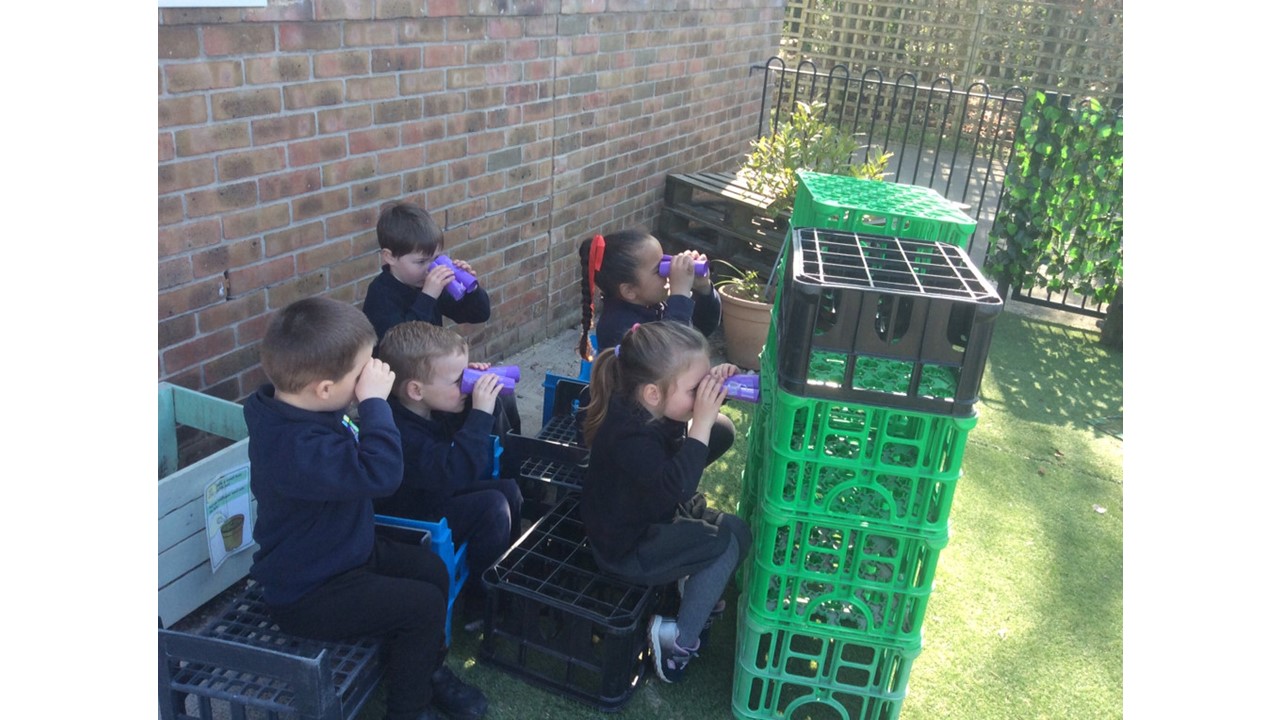
Evidence
In Early Years we identify the impact of the curriculum through on-going observations and pupil progress meetings which are held 3 times a year to discuss and moderate progress in reading, writing and maths. The EYFS teacher attends Statutory LA and MAT moderation meetings to ensure Quality Assurance and other EYFS staff members receive training according to needs and their contributions to the development of the setting is highly valued. Subject leaders monitor their subjects in EYFS through lesson observations, book scrutiny, learning walks and discussions with children.
The Early Years’ link Governor meets with the EYFS lead teacher through the year to discuss actions from the action plan and evaluate implementation and impact and then reports back to the Full Governing Body.
Through playing and exploring, being active learners and creating and thinking critically our children develop confidence to take risks and discuss their successes and failures with others. They are able to draw on their experiences to improve or adjust what they are doing. They demonstrate high levels of engagement in activities and develop a wider sense of the world around them and draw on these experiences during interactions with others to link to new learning. The characteristics of learning that they develop in their first year ensures that they become confident, curious, independent learners prepared for their next stage of learning.

